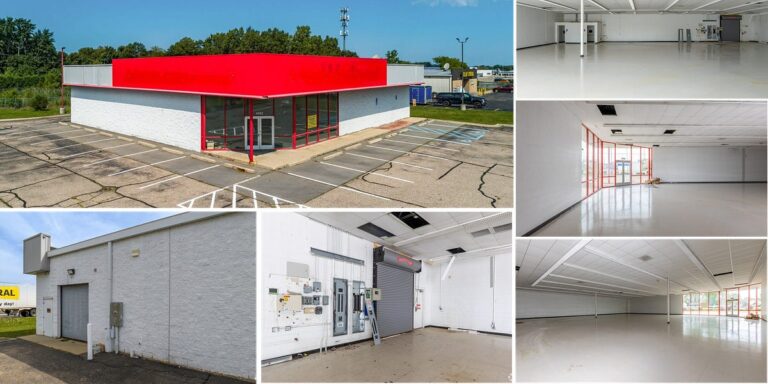In November, Advance Auto Parts (AAP), a brand synonymous with parts that you may or may not need, announced its ambitious plan to close down 523 corporate stores and gracefully exit 204 licensed locations operated by very independent dealers. Because when you’ve got a winning strategy, what better way to execute it than to pull the plug on a quarter of your business?
The closures, like a sad magic show, have officially begun. Abracadabra, and voilà, 224 leased sites and 24 owned locations are now managed by Hilco Real Estate, which sounds like a fancy name for “we handle your junk.” What’s left? Well, the remaining stores are probably just waiting for their leases to run out, like an impatient kid waiting for the school bell to ring.
Now, while these closures are so widespread they might as well have a nationwide tour, the Western U.S. takes the bulk of the hits. California, the land of dreams and avocado toast, is losing all 150 Advance Auto stores. So with over 700 vacated auto parts stores ready to hit the real estate market like a sad sitcom rerun, one has to wonder: what’s in store for this prime real estate?
Hilco is marketing these 224 leases as if they were artisanal trinkets at a hipster fair. It turns out that 156 (about 70%) are freestanding buildings, perfect for that “I’m in a hurry, but I need to fix my car” aesthetic. The remaining 41 are charming “end cap” spaces in strip malls, which are essentially the resting spots for the relentless carousel of retail. The keen observer might even spot 27 in-line spaces in shopping centers, just waiting to be rebranded.
If you’re wondering what exactly makes these properties desirable, imagine 7,000-8,000 square feet of open floor plans, ample parking spaces, and even a roll-up door that looks just like the one in every action movie when the hero makes a dramatic entrance. These locations have dreams of reincarnation; they yearn to be anything but an auto parts store.
But now the million-dollar question: who’s going to fill these gaps? Sure, O’Reilly Auto Parts and AutoZone might happily munch on the leftovers of Advance’s silent farewell, but they’re not going to step into the vacant buildings. They’ve got their own occupied spaces where they’re busy pretending everything’s fine.
Enter shoe retailers! Yes, apparently the retail rescue mission has shifted its focus from auto parts to foot fashion. Stores like Foot Locker and Skechers are allegedly eyeing these locations, perhaps thinking, “If we can make it work in a former drugstore, why not an ex-auto store?” One can now reasonably expect a shoe store where wrenches once lived, because why not? Need a pair of sneakers and a brake fluid? Who doesn’t love multitasking?
Grocery stores, you ask? Those might be on the radar as well. A former freestanding AutoZone in Richmond, Virginia was just reborn as El Nuevo Happy Mart at the bargain price of $1.95 million. This isn’t just a grocery store; it’s like the phoenix rising from the ashes of automotive despair.
But wait, there’s more! Collision centers and body shops could find their new homes in these ex-auto meccas. After all, a 7,000-8,000 square foot body shop might be just the ticket in rural markets. And who knows, you might get a car repair while grabbing your new sneakers. Convenience stores are already jumping into the fray; QuikTrip just snatched up a location, proving that even though you’re down on your luck, it’s still possible to pick up a Slurpee on your way home.
Finally, let’s not forget the unconventional uses. Some have even turned Advance Auto buildings into pet crematories. Because when your pet passes on, you want to ensure they have a proper send-off within the walls of a former auto parts store. It’s practically poetic. So, while one chapter closes for Advance Auto Parts, a new and bizarrely wonderful saga begins, as America’s vacant auto parts buildings find new lives in unexpected and occasionally hilarious ways.

